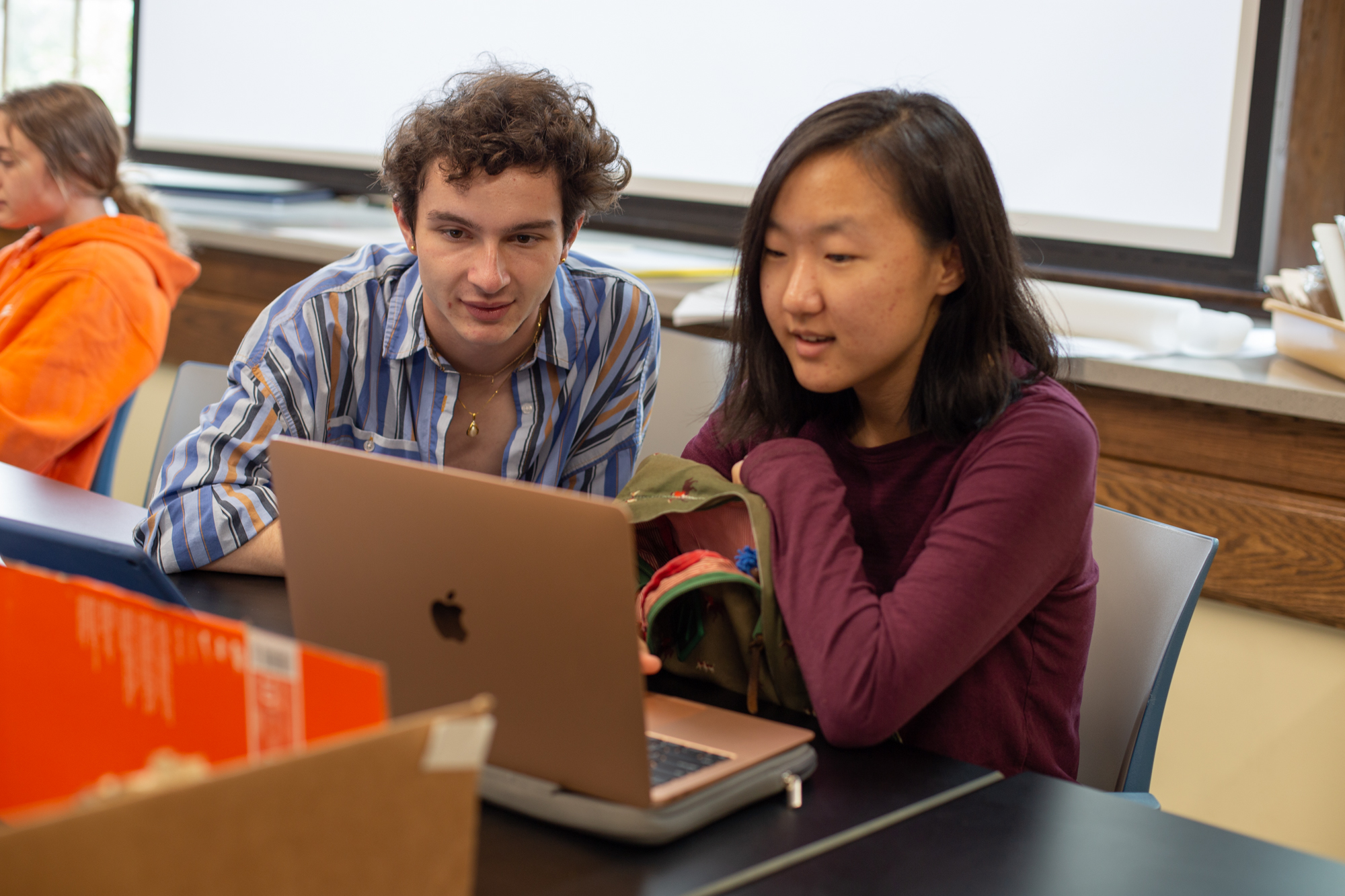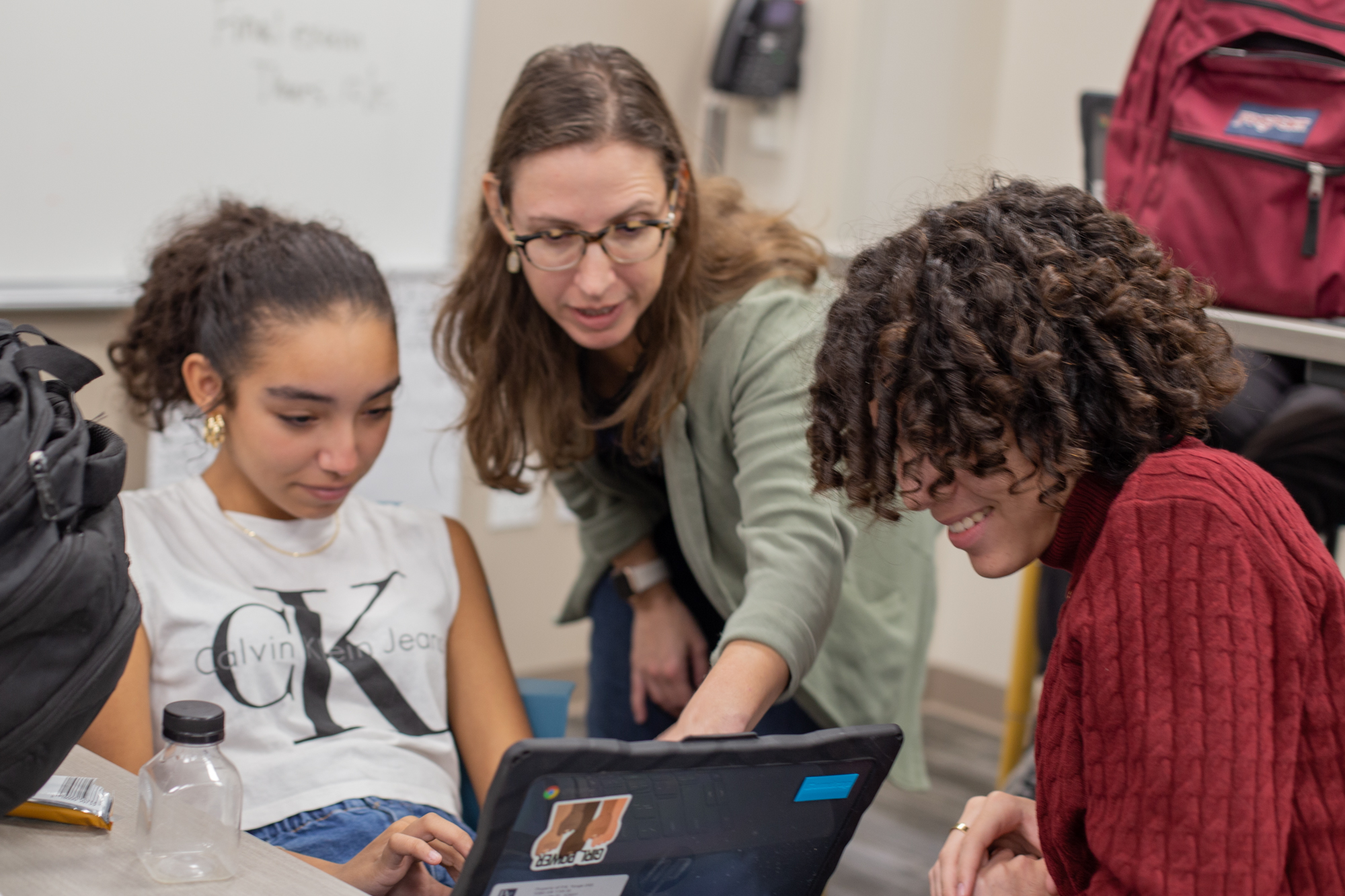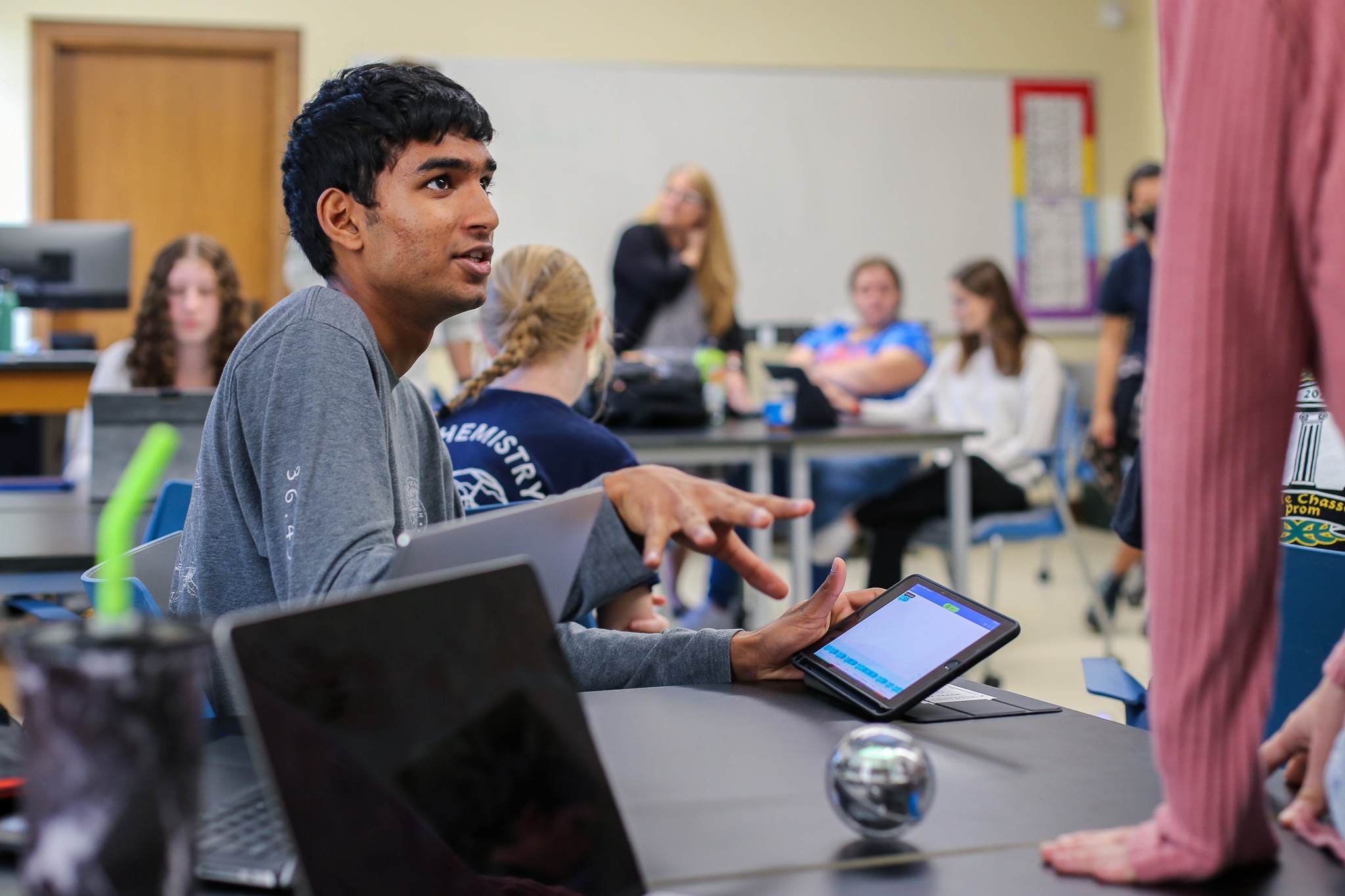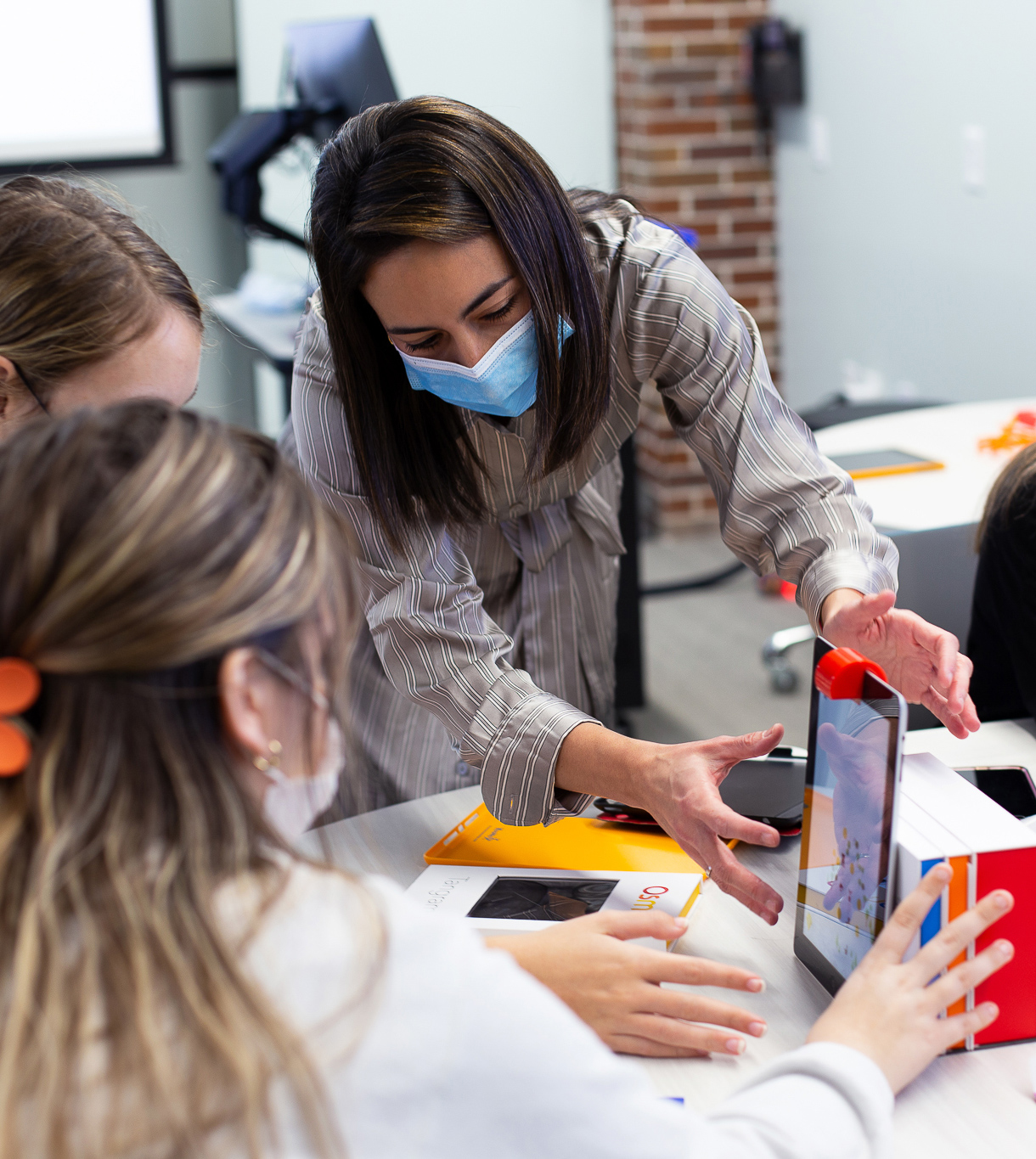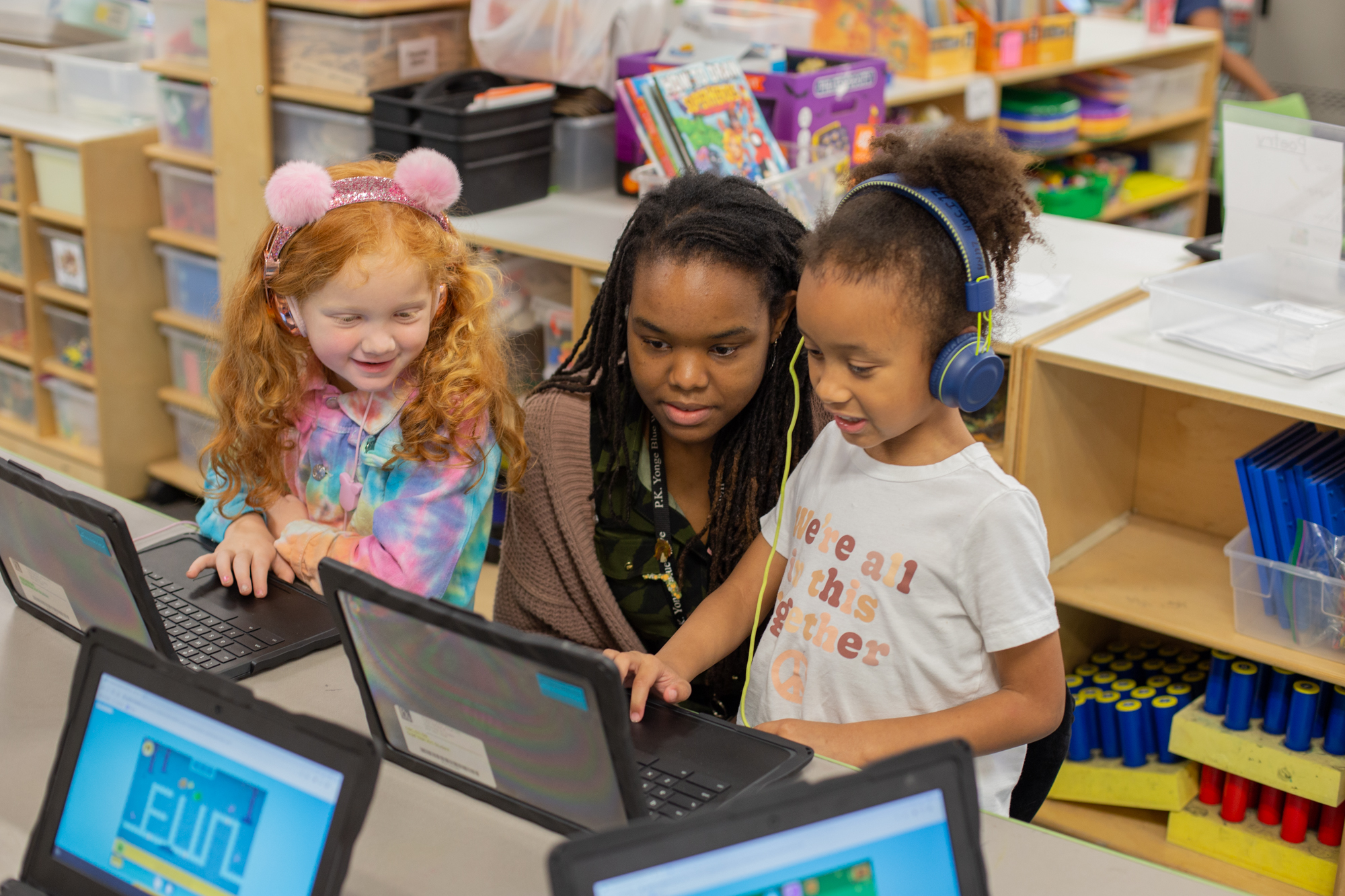Computer Science Integration into Existing University Courses
Integration is a strategy that involves learning and applying a variety of subjects within the same lesson. At the University of Florida, integration serves as an on-ramp for pre-service teachers to gain exposure and confidence with computer science (CS). Our team believes that CS is a discipline that can be integrated into a variety of subjects across grade levels. Additionally, research has shown that CS can help students develop problem-solving skills as well as deepen their understanding of subject matter content.
We are actively working with faculty members within the university’s Early Childhood, Elementary, and Secondary Education programs to integrate CS within existing courses. Through this work, our team is helping the next generation of teachers to bring CS into their classrooms regardless of subject matter concentration.
Spotlight: CS Ed Week
CS Education Week is an annual celebration of computer science that raises awareness about the importance of CS education for all students and emphasizes the impact of CS in today’s society. The CS Everyone team organized CS Ed Week events at the University of Florida’s College of Education and the university’s affiliated developmental research school, P. K. Yonge.
The CS Ed Week event at the University of Florida attracted hundreds of University of Florida students, faculty, and staff. During the event, participants engaged in coding exercises, programmed robots, and learned how fun CS can be. At P. K. Yonge Developmental Research School, all students from Kindergarten to 12th grade participated in Hour of Code activities.
Spotlight: UFTeach
The UFTeach and the CS Everyone team have developed a partnership to introduce computational thinking (CT) and CS to secondary STEM pre-service teachers. This work began in MAE 2364: Explorations in Teaching Secondary Mathematics and Science, the first course in a sequence that leads to a minor in mathematics or science education. The CS Everyone team and UFTeach faculty members introduced CT and CS concepts first through unplugged lessons and later through computer-based programming activities.
Following model lessons in CT and computer science, the pre-service teachers in the MAE 2364 planned and implemented CT and CS lessons for an after-school elementary STEM club. Building on the successful integration of CT and CS in the introductory course, UFTeach faculty and the CS Everyone team are looking to integrate CS in other courses within the UFTeach program.
Spotlight: Elementary Education Program
All pre-service teachers at the University of Florida in the elementary education program take a course titled EME 4401: Integrating Technology in the Elementary Curriculum. Pre-service teachers in this course participate in a three-week CS/CT module led by CS Everyone team members. In this module, they learn foundational CS concepts, play with CS educational tools, create a Scratch program that demonstrates their understanding of a Florida state CS standard, and work collaboratively to create CT/CS-integrated mini-lessons. These activities provide pre-service teachers with the knowledge and skills needed to incorporate CT/CS into their curriculum.
Additionally, in collaboration with Science Education faculty and researchers, the CS Everyone team has implemented computer science-infused science lessons to teach pre-service teachers about science concepts that they typically have difficulty with or hold misconceptions about. Initial findings from this work have shown that the computer science-infused science lessons helped demonstrate what integrated CS lessons look like and improved the pre-service teachers’ understanding of the science subject matter.
Spotlight: Early Childhood Education
Within the Bachelor of Arts in Early Childhood Education program at the University of Florida, the CS Everyone team has worked with faculty members to introduce CS and CT into an early childhood STEM education course. In the course, preservice teachers teach young children mathematics and science through processes of problem-solving, reasoning, communication, and inquiry. Preservice teachers in the course had a chance to explore appropriate uses of technology. During the summer semester, members of the CS Everyone team and PK Yonge Developmental Research School helped teach the preservice teachers about CS and robotics. Following those lessons, preservice teachers implemented CS and robotics lessons in practicum settings within a PreK and early elementary setting.

